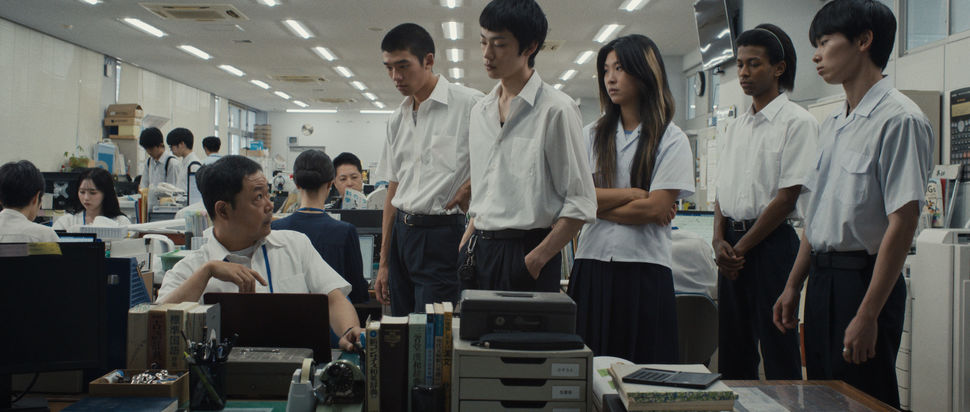Happyend
A group of rebellious school friends with a passion for throwing secret raves navigate a doom-laden, heavily surveilled future in this intriguing coming-of-age story
When the offspring of a famous director with a distinctive style scratches a directing itch themselves, it's easy to speculate what that debut film might be like based on the parent's work, even if the final product wildly differs from predictions – e.g. the Cronenbergs, multiple generations of Coppolas. It's a lot trickier to guess the early style of a director whose influential father left an indelible mark on cinema through a different field. Having helmed the acclaimed Ryuichi Sakamoto: Opus, which documented his father's final concert a few months before his death, Neo Sora now brings us Happyend as an impressive fiction-feature calling card, free of any overt ties to his dad's legacy.
In a near-future Japanese city, everyone's bracing for a devastating earthquake that's set to reshape life as they know it, while the government stokes far-right rhetoric against swathes of the population, such as Zainichi Koreans. Meanwhile, a diverse group of teens, on the cusp of graduation, navigate personal struggles and rising tension after a prank they play on their principal leads to the installation of intrusive surveillance tech at school.
Where you can see a connection between pioneering composer Sakamoto and his son's film is in Happyend's unpredictable rhythms. Sora takes the conventions of coming-of-age stories, especially Japanese school dramas, and infuses them with an air of dread that nonetheless doesn't sour the regular moments of joy, comedy and escapism. It's a clever, compelling way to explore creeping techno-fascism, made all the more resonant by how barely futuristic it all looks.
